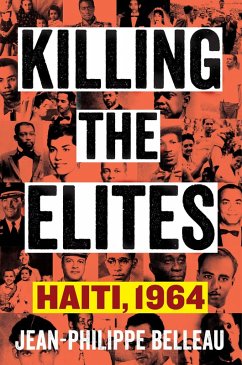In the summer and fall of 1964, a massacre took place in the small town of Jérémie, Haiti. After an ill-fated uprising, the brutal regime of François "Papa Doc" Duvalier ordered reprisals against the town that some of the insurgents were allegedly from. Entire families-all from the town's upper class-were slaughtered. Through a rich historical ethnography of the massacre, Jean-Philippe Belleau offers a new account of the workings of the Duvalier regime and an innovative analysis of anti-elite violence.
Killing the Elites meticulously reconstructs the various phases of the massacre, identifying the victims and perpetrators, tracing the social ties that linked them, and examining the varying degrees of culpability from the state to bystanders. Although Duvalier and the military were responsible, the killings were attributed to popular social grievances. Examining how the Haitian state has brutalized the upper classes, Belleau develops a new theory of anti-elite violence. He challenges views that ideology or social difference can readily drive people to kill their neighbors and that the upper classes fall victim to popular rough justice, showing that social bonds within the town prevented organized violence from spreading. The state, Belleau underscores, is the primary perpetrator of violence against elites. Drawing on interviews with eyewitnesses and former regime members as well as a wide range of unexplored primary sources, this book provides a new lens on Haiti under Duvalier and reveals why the victimization of the elite is essential to mass violence.
Killing the Elites meticulously reconstructs the various phases of the massacre, identifying the victims and perpetrators, tracing the social ties that linked them, and examining the varying degrees of culpability from the state to bystanders. Although Duvalier and the military were responsible, the killings were attributed to popular social grievances. Examining how the Haitian state has brutalized the upper classes, Belleau develops a new theory of anti-elite violence. He challenges views that ideology or social difference can readily drive people to kill their neighbors and that the upper classes fall victim to popular rough justice, showing that social bonds within the town prevented organized violence from spreading. The state, Belleau underscores, is the primary perpetrator of violence against elites. Drawing on interviews with eyewitnesses and former regime members as well as a wide range of unexplored primary sources, this book provides a new lens on Haiti under Duvalier and reveals why the victimization of the elite is essential to mass violence.
Dieser Download kann aus rechtlichen Gründen nur mit Rechnungsadresse in A, D ausgeliefert werden.









